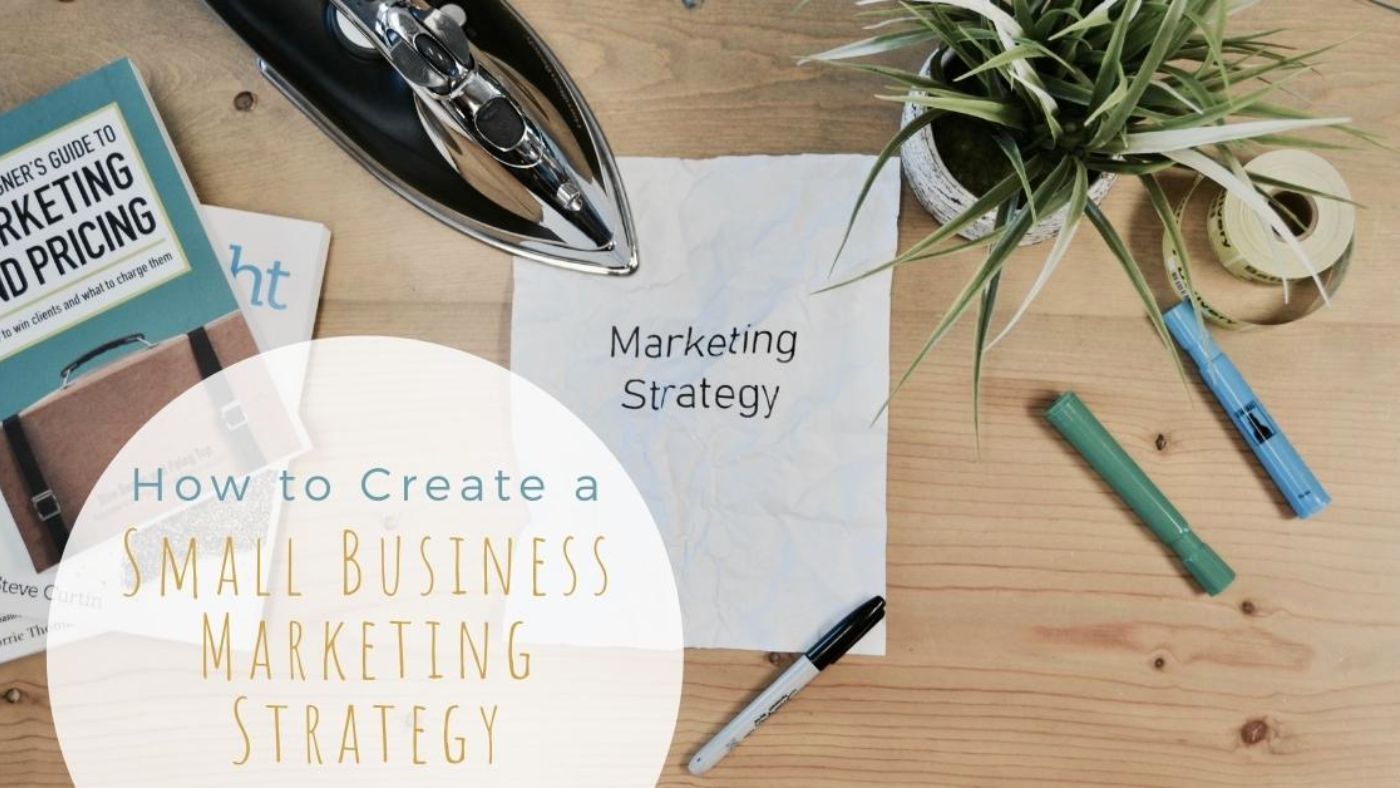Starting a small business can be overwhelming if you don't have any prior experience. There are many things that business owners should consider when building a brand from scratch. One of them is the marketing strategy.
It is often the most challenging aspect of setting up a small business strategy for beginners. There are, however, some ways you can get the most out of your marketing strategy without spending countless hours trying to get it off the ground. If your startup budget doesn't stretch to hiring an outside professional who specializes in small business marketing strategies, this article will help you figure out what you need to do when setting up a marketing strategy for your handmade brand.

Why Small Businesses Need to Plan a Marketing Strategy
Small businesses - particularly in the handmade space - are typically single-person operations. That means one person is doing everything - from sales to marketing - within the business. This can be a great way to take control of your own destiny and manage all aspects of the company, but it's also highly stressful and does not leave much room for error.
Although every task in a small business may seem important, your marketing strategy must take precedence over everything else - because, without it, you are destined to fail. Your customers must know what they can expect from your brand, and they need to feel as though you understand their needs. You can do this by developing an effective small business marketing strategy and plan before your competitors beat you to it.
Six Tips to an Effective Marketing Strategy
1. Know your business goals
The key to marketing strategy success is understanding the goal you want to pursue in your business. Your business goals should drive your marketing goals, and your marketing goals will determine which marketing channels you use, and the messaging of each campaign. Knowing where you want to be is the key to crafting the right journey to get you there. So start with the big picture and then work backwards.

2. Research your audience
If you are starting a new business, audience research helps you understand who your ideal customer is, so you can put together effective marketing campaigns that target the right people (those most likely to buy your products). Research will help you better understand who your ideal customers are, where you will be able to find them, and what their interests are.
This knowledge will inform your sales funnels that reach your audience, build a following, and convert them into customers. That's why audience research is essential at every stage of your business. Whether you're just starting out or planning to launch a new product, you need to understand who your offers are for.

3. Analyse your products first
Make sure to analyze your product before telling the public about it. To be successful at marketing, it's important to find out the problem first before finding a solution for it. If you help others solve their problems, they will think you're a great brand that can improve their quality of life.
Understand what your audience's problems are, and clearly define how your products solve those problems, and you'll know what messages you need to convey in your marketing campaigns to reach your target audience.
4. Determine your marketing tactics
Marketing tactics play a huge role in the success of small businesses. There are many ways you can market your product, such as using video marketing and email marketing. Your marketing strategy should define which of these tactics are best suited to reach your audience, convey your message, and meet your goals.
For example, internet marketing allows you to reach more people since most of your target audience is going online. Therefore, having an online presence like building a website or marketplace storefront is a must for most small businesses.
However, having a storefront is not enough. You need to add value for your audience by constructing blog posts, articles, explainer videos, and infographics to provide information and help potential customers make decisions, while also establishing your brand as an authority in your chosen space.
5. Develop a social media presence
A great place where you can provide that value to your audience is social media, because it's now at the heart of every online activity. To say that having a social media account is ideal, is an understatement. Every small business - or even hobbyists who want to find success selling online - should have a presence on the social networks where their audience spends time.
An active social media presence is crucial.
It assists in establishing your brand as an authority figure in your industry, which in turn boosts your credibility and lead generation. You can also expand your customer reach via social engagement, such as photo and video sharing, which increases public relations and trust in your brand (an important factor for turning leads into sales).
With social media, you're able to connect with potential and existing customers in real-time. This helps improve your brand awareness, nurture leads on their buyer journey, and be front-of-mind for your customers when they're ready to make a purchase.

6. Know what messages resonate with customers
Messages are an integral part of every small business marketing strategy as they can drive marketing decisions and help understand customer buying behavior. In order to hook your customers with powerful messages, you should know things that are relevant to their life.
Make sure to write a story by including your audience in it. Let them know that your brand is there to help them and that you understand their pain points well. When they resonate more with your brand's messages, it's easier to convert viewers into customers.
Conclusion
Setting up a marketing strategy for a small business can be daunting. A multitude of factors needs to be taken into consideration, including location, demographics, industry trends, level of competition, and many more.
To make the process easier for you, keep in mind that your goal is to attract and convert potential customers through specifically crafted messages or campaigns that align with their needs and your business goals. Because different kinds of people are interested in different products, it makes sense to treat them differently.
If they are not willing to go the extra mile when searching for your business on Google, then there's a slim-to-none chance that they will purchase your small business. Your marketing strategy aims to define how you'll target the right audience, in the right place, with the right message at the right time.
Words by:

Breadnbeyond Founder,








